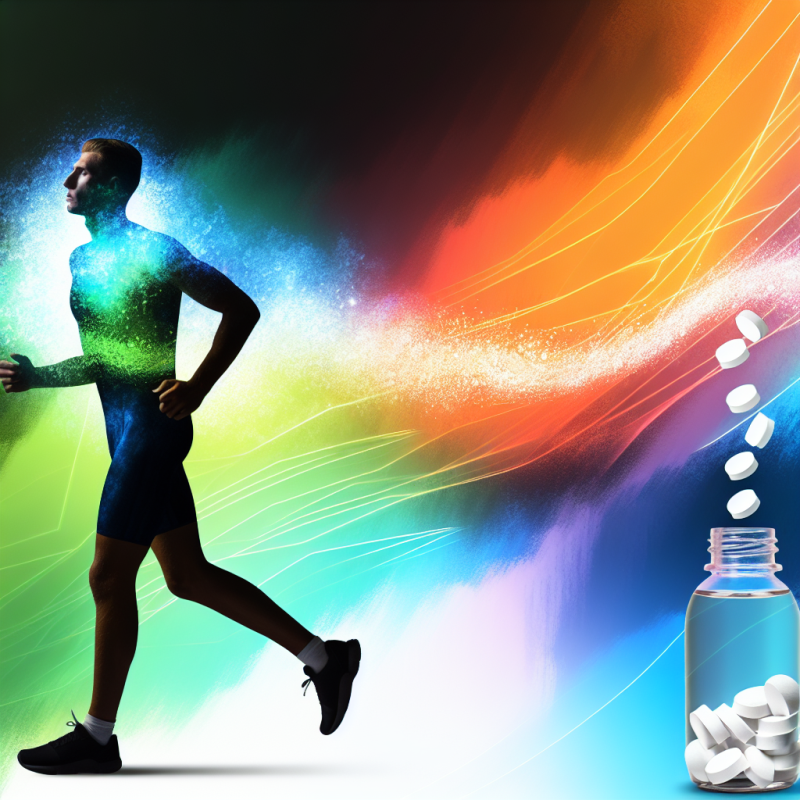Hangovers are a common occurrence for many people, especially after a night of indulging in alcoholic beverages. Waking up the morning after can often be accompanied by a range of unpleasant symptoms that can leave you feeling exhausted and regretful. Recognizing these symptoms is key to understanding the impact of a hangover and how to manage it in a healthy way.
One of the most recognizable symptoms of a hangover is a pounding headache. This throbbing sensation is often caused by dehydration, which is a result of alcohol's diuretic effect on the body. If you find yourself waking up with a headache after a night of drinking, it's a clear sign that your body is dehydrated and in need of fluids.
In addition to a headache, another common symptom of a hangover is nausea. Alcohol irritates the lining of the stomach, leading to feelings of queasiness and an unsettled stomach the next day. It's not uncommon to experience dry heaving or even vomiting during a hangover. These symptoms can be exacerbated by the consumption of greasy or fatty foods the night before.
Fatigue and overall body weakness are also often associated with a hangover. Alcohol disrupts your sleep patterns, preventing you from entering the deep and restorative stages of sleep. As a result, you may wake up feeling tired, lethargic, and with a lack of motivation. It's crucial to listen to your body and give it the rest it needs to recover fully.
Causes of Hangovers: Understanding the Culprits
Hangovers are a common and unpleasant result of excessive alcohol consumption. We have all experienced that pounding headache, cotton-mouthed dryness, and overall feeling of regret the morning after a night of boisterous partying. But have you ever wondered what exactly causes these notorious hangovers? Let's delve into the culprits responsible for this unpleasant phenomenon.
Dehydration is one of the primary causes of hangovers. Alcohol acts as a diuretic, causing increased urine production and subsequent fluid loss from the body. As a result, we are left feeling parched and exhausted the next day. To minimize the effects of dehydration, it's crucial to alternate alcoholic beverages with glasses of water while drinking or to hydrate yourself adequately before going to bed after a night out.
Another significant factor contributing to hangovers is the production of acetaldehyde in the body. When alcohol is metabolized, it breaks down into acetaldehyde, a toxic substance that wreaks havoc on our system. The accumulation of acetaldehyde leads to the classic symptoms of a hangover, including nausea, headache, and fatigue. To alleviate the impact of acetaldehyde, it is best to consume alcohol in moderation and allow your body the necessary time to metabolize it.
Lastly, the disruption of sleep patterns caused by alcohol consumption adds to the misery of a hangover. While alcohol may initially make you feel drowsy and ready to drift off, it disrupts the natural sleep cycle, causing fragmented and restless sleep. This results in feeling groggy and fatigued the next day, as your body fails to get the restorative sleep it needs. Ensuring you get enough quality sleep after drinking can significantly reduce the severity of a hangover.
Coping with Hangovers: Simple Remedies for Relief
Waking up with a hangover after a night of heavy drinking can feel like a punishment from the universe. The pounding headache, the queasy stomach, and the overall feeling of exhaustion can make you want to crawl back into bed and stay there all day. But fear not, because we've compiled a list of simple yet effective remedies that can help you get back on your feet and tackle the day.
First things first, hydration is key to combating a hangover. Alcohol dehydrates your body, which contributes to many of the unpleasant symptoms you're experiencing. Reach for a glass of water as soon as you wake up, and make it a goal to drink plenty throughout the day. If plain water seems unappealing, try coconut water or sports drinks that can replenish both fluid and electrolytes.
Eating a good breakfast might be the last thing on your mind when you have a hangover, but trust us, it can do wonders for you. Opt for foods that are easy on your stomach, such as toast, crackers, or plain oatmeal. Bananas are a great choice as well, as they contain potassium which can help ease muscle cramps often associated with hangovers.
While physical remedies are crucial, don't underestimate the power of mental relaxation. Engaging in activities like meditation, deep breathing exercises, or even taking a warm bath can help soothe your mind and reduce stress levels, allowing your body to recover more efficiently. Remember, a hangover is just temporary, and taking care of yourself in all ways possible will help speed up the healing process.
Preventing Hangovers: Tips to Avoid Morning After Misery
We've all been there, waking up after a night of revelry only to find ourselves facing the dreaded hangover. The pounding headache, queasy stomach, and overall feeling of being utterly miserable can truly ruin the next day. However, there are ways to prevent this morning-after misery and ensure you wake up feeling fresh and ready to take on the day. Follow these simple tips to enjoy your night out without regretting it the next morning.
First and foremost, it's essential to stay hydrated throughout the night. Alcohol can cause dehydration, which intensifies hangover symptoms. Make sure to drink plenty of water before, during, and after consuming alcohol. This will not only help to flush out toxins but also keep you hydrated, reducing the severity of your hangover. Consider alternating between alcoholic drinks and water, or even adding a slice of lemon or lime to your water for an extra refreshing touch.
Another key factor in preventing hangovers is eating a substantial meal before drinking. Having a balanced meal that includes carbohydrates, protein, and healthy fats can slow down alcohol absorption, reducing the likelihood of experiencing severe hangover symptoms the next day. It's best to opt for foods that are easy to digest, such as whole grains, lean meats, fruits, and vegetables. Avoid greasy or fatty foods, as they can irritate your stomach and worsen hangover symptoms.
Lastly, it's important to know your limits and pace yourself when consuming alcohol. Drinking too much, too quickly, can overwhelm your body and lead to a much worse hangover. Remember that it takes time for alcohol to be processed by your liver, so try to stick to a moderate pace. Consider having a glass of water between alcoholic beverages and setting a limit for the number of drinks you plan to consume. Your body will thank you the next morning.



